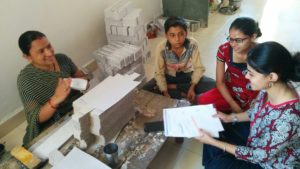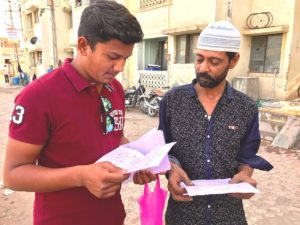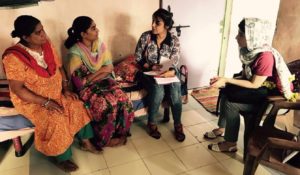The Expense, Engagement and Expectation (EEE) Study at Rajkot seeks to measure parental involvement in education among low-income families and its effects. Perhaps for the first time in India, the study will analyse panel data collected over six months on: a) types and amount of education and health related expenditure b) types and extent of parental engagement with children and schools, and c) types of sources and types of information that feed education decision of parents. This study by Baladevan Rangaraju at India Institute and Emmerich Davies at Harvard Graduate School of Education is authorized by the Education Department of the Rajkot Municipal Corporation.
Objective
The purpose of this study is to broadly examine the nature and extent of parental involvement in the education of their children- in the form of expenses, interaction with the school, teachers, tuition teachers, the child, colleagues and family members etc and its co-relation with the aspiration of the parents and the accountability of the schools. The study will inform the policy makers of the best possible direction in formulating and implementing the most suitable policies for the education of children from the Economically Weaker Sections (EWS).
Currently the project we are collecting baseline data of 400 randomly selected families from low-income colonies. Between June and December 2017, there will be-
- A baseline socio-economic and education survey
- A baseline learning level assessment of children
- Maintaining of two household journals- one for expenditure and the other for engagement
- An end line socio-economic and education survey
- An end line learning level assessment of children
- A survey of schools serving the children of the selected families
- Other interviews and observations
Participating parents will also benefit from special workshops on parenting, education planning, child rights, health etc at regular intervals.



